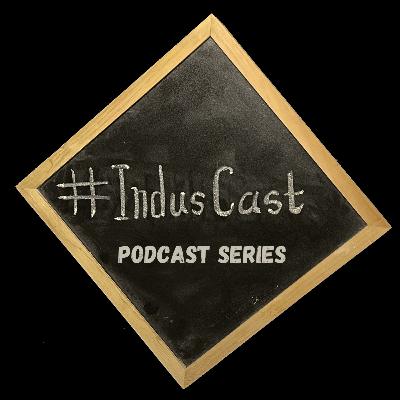IndusCast: Critical Geography and Social Justice | Dr. Daanish Mustafa
Description
Dr. Daanish Mustafa obtained his PhD in Geography from the University of Colorado. He has taught at George Mason University in Fairfax, VA, and later at the University of South Florida, St. Petersburg, before finally finding his intellectual home in the Department of Geography. During his tenure at King's College London, he was awarded the School of Social Science and Public Policy excellence in teaching award. Dr. Daanish's research interests lie in water resources geography, environmental hazards, development, and critical geographies of violence and terror.
In this podcast, Dr. Daanish discusses the intersection of critical geography and social justice. He believes that language plays a vital role in shaping our perception and understanding of anything. For example, he cites the case of the Leai River, which was once a river but has now been referred to as Nullah Leai in our language. Unfortunately, everyone now calls it Nullah Leai and thinks of it as a dirty Nullah, which has led to the river being polluted.
Floods and other disasters are an inevitable part of our world, but Mustafa argues that our attempts to control and combat floods have often led to more harm than good. He argues that this is a reckless and dangerous practice that often leads to the destruction of costly infrastructure and loss of lives. Responding to a question about floods and damages in Baluchistan, he says that this is an area of flash floods, and when we make mega structures and dams, flash floods come and destroy all the structures.
Regarding the participation of people in decision-making, he says that people are alienated from their government, and there is a huge difference between the poor and the rich, which is being done deliberately to isolate the people from the decision-making process. Therefore, people don’t trust the state and governments. But there are some pressure groups, and there is hope that the local political landscape will improve. It’s time for people to get together, even at a very small level.
Dr. Daanish thinks that using big English words and phrases like climate change and climate adaptation in poor societies like Pakistan is unnecessary. Our ignorance of geography is the reason why we can easily be fooled. Discussing the construction of Diamer Bhasha on a height of over seven thousand feet above sea level in seismic zones is nothing more than a mistake.
Dr. Daanish Mustafa also criticizes the use of complex language and jargon in discussions like climate change and climate adaptation. The professor is particularly critical of the construction of dams in seismic zones like Diamer Bhasha. He says that deliberate isolation of poor communities from the rest of society is a major contributor to the lack of trust in government institutions. However, he appreciates the community efforts of the people of Gilgit Baltistan and remains hopeful that local progressive political and pressure groups at the lower end of Indus can bring about change. He encourages people to come together, no matter how small they are, to solve their local issues.





